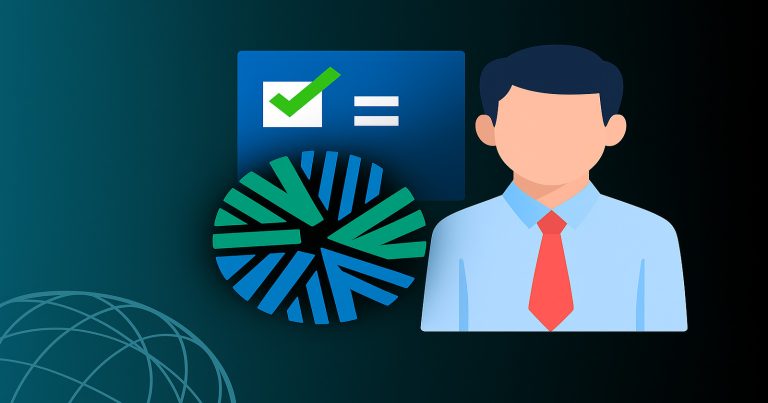The CFA program is one of the most respected certifications in finance. Many students in India now dream of becoming Chartered Financial Analysts (CFA) and entering top finance jobs. CFA eligibility in India is a popular search term today because thousands of graduates, undergraduates, and working professionals want to know if they can apply for this program. Anyone with a bachelor’s degree or those in the final year of graduation can apply. Engineers, commerce students, and MBA graduates also meet the eligibility requirements.
CFA Eligibility India
CFA aspirants in India must meet specific qualifications and documentation requirements. CFA Institute defines strict entry rules to maintain global education standards. CFA exam eligibility in India includes academic qualifications, professional experience, and valid identification. These rules ensure candidates are serious and capable of completing the program.
Academic Qualifications for CFA Level 1 Eligibility
Candidates must have a bachelor’s degree or be in the final year of graduation. CFA Institute allows students in the last year of their undergraduate program to register for CFA Level 1. However, the degree must be completed before appearing for Level 2. Those who do not have a degree can also qualify based on their work experience.
Professional Work Experience Path
Aspirants can also apply with 4,000 hours of professional work experience. This experience must be gained over a minimum of 36 months. It should involve decision-making, analysis, or other finance-related skills. Internships do not count unless they are paid and professionally verified.
Age and Identification Requirements
There is no strict CFA age limit in India. However, candidates must have a valid international travel passport. This passport is a primary identification document throughout the exam and registration process.
Essential Notes on CFA Eligibility Without Work Experience
Students without work experience can still apply using their academic qualifications. Work experience is not needed for the Level 1 exam, but it is mandatory to receive the CFA charter. Experience must be earned after enrollment and before completing the program.
Who Can Apply for CFA Program in India?
Many students wonder if they qualify for the CFA program. The answer depends on their academic background, experience, and current education status. CFA eligibility criteria 2025 remain consistent with past rules but with a more flexible approach for final-year students.
CFA for Commerce Students
Commerce students are the most suitable candidates for the CFA program. Their academic background in accounts, finance, and business gives them a strong foundation. Many BCom graduates apply for the CFA right after college.
CFA After Graduation
Students can pursue the CFA after graduation in any stream. CFA after BCom is a natural fit, but even CFA after MBA or CFA eligibility for engineers is possible. The main requirement is a bachelor’s degree. MBA finance graduates can gain advanced financial knowledge through the CFA.
Can a 12th Pass Apply?
CFA eligibility after the 12th is not possible. Students must complete or be near completing a bachelor’s degree. CFA Institute wants candidates to have strong analytical skills, which develop better during graduation.
CFA Eligibility for Engineers and Non-Commerce Backgrounds
Engineering graduates can also apply. They need to put extra effort into understanding finance basics. CFA for commerce students is easier, but many engineers pass with proper CFA exam preparation strategies in India.
Is CFA a Good Option After Graduation in India?
Yes, CFA is one of the best programs after graduation. It opens global career options and helps students get jobs in finance. CFA after graduation adds professional value and builds strong investment analysis skills.
Career Scope and Job Opportunities
CFA job opportunities in India include roles like:
- Research Analyst
- Investment Banker
- Risk Manager
- Portfolio Manager
- Credit Analyst
Companies in banking, financial services, fintech, and investment firms hire CFA candidates. CFA Level 1 alone can help students get internships or entry-level analyst positions.
CFA vs CA in India
CFA and CA are both top career choices. CFA focuses on investment and global finance. CA focuses on accounting, auditing, and tax. Students interested in stock markets, investment banking, and portfolio management prefer the CFA.
CFA Salary Expectations
Salaries depend on experience and the CFA level. CFA charterholders earn ₹9-12 LPA on average. CFA Level 1 candidates can earn ₹4-6 LPA depending on skills and location.
CFA Course Structure
Understanding course fees, duration, and exam pattern is key for preparation. CFA course fees in India may be high, but they provide a global certification recognized in 160+ countries.
CFA Course Fees India
The CFA course fees in India vary based on when candidates register:
| Registration Type | Fee (USD) |
| Early Registration | $940 |
| Standard Registration | $1,250 |
| One-Time Enrollment Fee | $350 |
Note: Fees are charged in USD. The total cost for the three levels ranges from ₹2.5 to ₹3.5 lakhs in Indian currency.
CFA Course Duration in India
The duration of the CFA course in India is around 2.5 to 4 years. Each level requires a minimum of 300 hours of study. Gaps between levels depend on exam dates and student preparation.
Exam Structure and Level-wise Syllabus
The CFA Level 1 syllabus includes:
- Ethics and Professional Standards
- Quantitative Methods
- Economics
- Financial Reporting and Analysis
- Corporate Finance
- Equity, Fixed Income, Derivatives
- Portfolio Management
CFA Level 1 has 180 multiple-choice questions divided into two sessions. Levels 2 and 3 include item sets and essay-style questions.
CFA Exam Dates India and Registration Process
CFA exam dates in India vary throughout the year. CFA Institute conducts exams four times yearly for Level 1 and twice for Levels 2 and 3. The CFA registration process in India is online through the CFA Institute website.
CFA Exam Preparation India
Many aspirants struggle to begin and manage time for the CFA exams. A clear strategy ensures better understanding, time management, and success. CFA exam preparation India is a top search term because students want localized tips relevant to Indian education and job markets.
Start Early and Follow a Study Plan
Students must begin at least 5–6 months before the CFA Level 1 exam. The syllabus is vast and includes 10 major subjects. Preparing in a rushed manner causes stress and weak scores. Candidates should follow a weekly plan, dividing subjects by weightage. Ethics and FRA must be revised frequently.
Use Official CFA Institute Resources
The CFA Learning Ecosystem is the most trusted and updated source. It includes end-of-chapter questions, topic summaries, and mock exams. Indian students often rely too much on coaching and ignore the CFA-provided content. This reduces their exam readiness. Candidates should complete all official topic tests and mocks at least once.
Self-Study vs Coaching in India
Both methods work, but students with finance backgrounds often prefer self-study. Coaching is better for non-commerce students or working professionals who need structure. Institutes like FinTree, Sanjay Saraf, and QuintEdge are popular in India. Candidates must choose based on their discipline, time, and budget.
Time Management and Practice Tests
Mock tests help improve speed, accuracy, and confidence. Each CFA Level 1 exam includes 180 questions split over two sessions. Practice exams help simulate the real-time environment. Candidates should take at least 3 full mocks and thoroughly analyze weak areas.
Avoid Common Mistakes
- Skipping Ethics and overfocusing on Quant or Economics
- Cramming last-minute without revision
- Ignoring the CFA Level 1 syllabus structure and question format
- Not practicing time-bound questions
Candidates who follow a disciplined plan and use official resources have a higher chance of clearing in the first attempt.
Step-by-Step CFA Registration Process in India
Understanding how to register is essential for all new aspirants. India’s CFA registration process involves multiple stages—creating an account, verifying eligibility, selecting exam dates, and submitting documents. Mistakes during this process can delay attempts or even cancel exams.
Create a CFA Institute Account
Candidates must visit www.cfainstitute.org to begin. A valid international travel passport is necessary. Personal information must match the passport exactly. Any mismatch can cause problems during exam check-in.
Choose the CFA Exam Window
CFA exams happen in specific windows. For example, CFA Level 1 exam dates in India are usually held in February, May, August, and November. Students must choose the window based on their readiness. Each window has a registration deadline, so candidates must plan.
Submit Eligibility and Pay Fees
CFA exam eligibility in India requires candidates to declare their academic qualifications or work experience. Students must upload academic documents and agree to the CFA Institute Honor Code. They must then pay fees using international payment methods.
| Component | Fee (USD) |
| Enrollment Fee | $350 (one-time) |
| Early Registration | $940 |
| Standard Registration | $1,250 |
Note: India’s CFA course fees may fluctuate based on dollar conversion rates. Early registration helps reduce costs.
Book Your Exam Center or Online Slot
Once registration is complete, candidates must book their exam slot. CFA exams in India are held in cities like Mumbai, Delhi, Bangalore, Chennai, and Hyderabad. Some exams may allow remote proctoring. Candidates should select a center nearest to them for ease.
Get Confirmation and Start Preparation
After a successful booking, candidates receive an email confirmation. They also get access to the CFA Learning Ecosystem. Preparation must start immediately as the syllabus is vast and time-consuming.
Key Reminders for the 2025 Cycle
- Always register using a working email ID
- Keep your passport updated with the correct name and address
- Choose early registration for fee savings
- Use the official curriculum provided by CFA Institute
The registration journey is simple, but attention to detail is critical. Indian students should always double-check forms and deadlines to avoid errors.
CFA Eligibility India FAQs
- Who is eligible for the CFA in India?
Anyone with a bachelor’s degree or in their final year of graduation is eligible for the CFA Level 1 exam. Alternatively, candidates with 4,000 hours of relevant professional work experience can also qualify. The eligibility criteria must be fulfilled before registering.
- Is 70% enough to pass the CFA?
While 70% is widely considered the benchmark, the CFA Institute does not disclose the official passing score. The actual passing score may vary each year based on exam difficulty. It is safest to aim for above 70% to maximize your chances.
- Who qualifies for CFA?
Individuals with a four-year bachelor’s degree or equivalent work experience qualify for the CFA program. Students within 11 months of graduation may also apply for Level 1. Meeting these criteria ensures eligibility to register for the exam.
- Who is eligible for CFA Level 1 2025?
Candidates in their final year of their undergraduate program or those with a completed bachelor’s degree are eligible. You must also have a valid international travel passport. Work experience can also substitute for academic qualifications.
- Can diploma holders apply for the CFA?
Diploma holders are not eligible unless they possess 4,000 hours of work experience over at least 3 years. A bachelor’s degree or its equivalent is the standard requirement. A work-based qualification must be relevant and well-documented.


